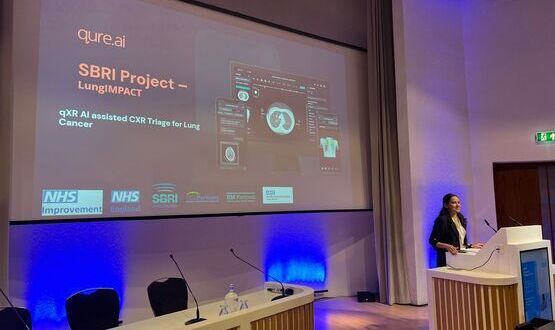Poor IT behind Imperial cancer problems
- 28 September 2012

An independent review of data quality issues affecting cancer patient referrals to Imperial College Healthcare NHS Trust has identified “poor computer systems” as a key cause of the problem.
The review’s report highlights the trust’s use of up to 17 different IT systems as causing problems for patient tracking.
However, it says the trust should be aware of the risks of moving to a single system, Cerner Millennium, because of reported problems in providing performance data after similar moves at other London trusts.
In January 2012, the report says the NHS Intensive Support Team was reviewing the way reports on cancer waiting times were created from Imperial’s cancer IT system, Excelicare.
The team discovered that almost 3,000 patients were still on open pathways who should have been seen within two weeks. In May, letters were sent to GPs to try and ascertain the clinical status of around 1,000 patients.
A review group was set up by to look at 74 patients who had died and been affected by the problems, but this found no patients who suffered harm because of a delay in treatment.
The trust ordered an external review into the data collection issues and the report, from Terry Hanafin and Associates, identifies poor IT as a significant contributing factor.
“The fact that cancer data collection involved taking data from 17 systems, much of it entered manually onto the cancer information management system, meant that it was crucial that there was strict adherence to standardised procedures,” it says. “However, the IST found that this was not the case.”
The report says Excelicare was weak for patient tracking, as populating cancer waiting times relied on manual data entry, with information being transcribed from 15 other systems or data repositories.
Two week wait referrals were communicated between teams via internal fax and paper hand-offs and could not be recorded as cancer 2WW patients on the PAS until the appointment had been made, it added.
The reportsays that the trust had planned to replace its various IT systems with a new single system which would align all data reporting.
Imperial is due to get Millennium under the National Programme for IT in the NHS and is already using it for order communications.
However, the trust withdrew from its implementation date for the full EPR following problems with a similar deployment at Royal Free London NHS Foundation Trust. This meant it lost its place in the national timeline, the report says.
The trust decided to implement its IMS Maxims PAS, already in use at theHammersmith campus, at St Mary’s Hospital to make it easier to transfer to the Cerner EPR when a new date was set.
The report says this “integrated computerised hospital information system” was not easy to use for tracking patients.
It was easier to start a new patient pathway than to find and link to an existing pathway for a patient. Meanwhile, many standalone systems were not linked into the main PAS, leading to the manual transfer of data.
“However, the systems could have been made to work if there had been trust-wide SOPs (standard operating procedures), a full training programme, strong discipline so SOPs were implemented, monitoring of compliance, an assurance framework for testing data transfer and data quality audits,” the report explains.
The report says the trust should keep these issues in mind when it transitions on to Millennium next April.
“A number of other trusts in London (like Barts and the London) had serious problems and couldn’t produce activity or performance data for a number of months after changing to Cerner,” it says.
“The trust must learn lessons from other trusts who’ve implemented Cerner, plan the changeover for cancer and the PAS very carefully and programme manage the implementation vigorously.”
Imperial chief executive Mark Davies said: “To resolve this problem, the trust has had to carry out one of the biggest ever NHS data validation exercises to ensure patient records are as accurate as possible.
“We have implemented new systems for recording patient information, improved staff training and radically changed management structures, with the appointment of a new chief operating officer, who is personally overseeing these changes.”




